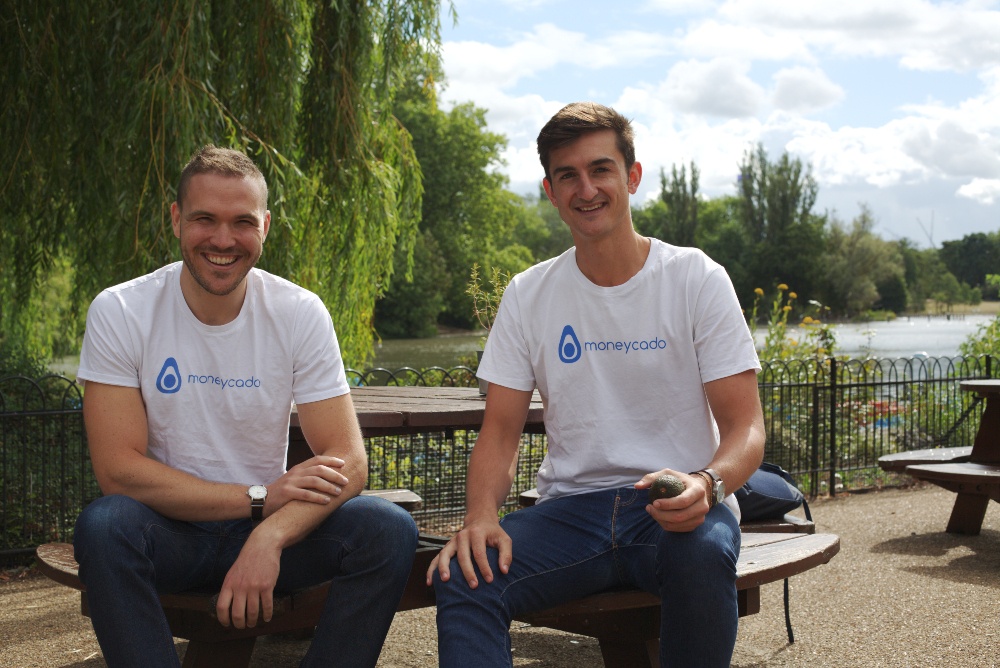Moneycado: How to come up with a winning business idea
Trying to come up with an idea for your business? In this interview, which is a part of a series in partnership with content creators the Startup Van, the founder of fintech and travel company Moneycado shares his experiences and advice on how he came up with his idea and the steps he’s taking to bring […]

Trying to come up with an idea for your business? In this interview, which is a part of a series in partnership with content creators the Startup Van, the founder of fintech and travel company Moneycado shares his experiences and advice on how he came up with his idea and the steps he’s taking to bring it to life.
“The thing which has had the most value for me is writing a blog each week. It’s enabled people to come on the journey with me, to build a network of collaborators and also to give me accountability – especially in the early stages, which is unbelievably important.”
So says Oliver Mitchell, a young entrepreneur who credits his strong community focus with the development of his business proposal: a crossover fintech and travel company called Moneycado.
Moneycado’s mission is to encourage millennials to save for their dream holiday. But what Oliver plans to offer is far from a standard savings product.
Moneycado gamifies and incentivises saving by offering gifts when milestones are reached. These gifts could be a holiday treat but savers might also unlock a “credit boost” to purchase an expensive flight at an early bird rate, despite not yet having the cash. In other words, Moneycado will also be selling credit products.
At present Moneycado has yet to launch – that’s pencilled in for autumn 2018 – but Oliver and his team are focusing on building a waiting list while also building the product behind the scenes.
To see more about the product Moneycado is building, try their latest feature – A Trip Cost Calculator where you can discover how much you need to save for next trip.
A new old story
It might sound like Moneycado is still young but the story began some time ago. It’s one that provides a healthy paradigm for anybody considering a startup.
“I started without an idea and without a team,” says Oliver. “I just started talking to people about the general area of finance – about what they’re used to today, what the problems were, what they felt about it and so on.”
The first hint of Moneycado’s mission was found in the aforementioned blogs Oliver penned on basic personal finance – budgeting, saving, investments, debt and so on. Feedback was so good that he organised events where, for £10, people could hear him speak. These were also successful but in more ways than strictly lucrative.
Those early days were less about developing a product or making money, says Oliver, and more about gaining a complete understanding of customer requirements.
“In truth the people who needed help working with their finances are not the kind of people who would either proactively read blogs or go to events,” he adds, quoting research that shows only 23% millennials save towards investments.
Reaching such people would require a radically different approach.
He says: “The key to driving is not teaching you how an engine works. In the same way, the key to financial literacy – to engaging people with finance – is not teaching them content. It’s building an inclusive product which actually engages you and makes you want to work with that – which speaks in your language.”
It was at this point that the idea was unlocked in Oliver’s mind.
He says: “I said, OK, well let me turn this on its head. What would a savings experience for travel look like? And that’s when the idea started to flow: gamifying the rewards process, enabling social payments, and friends contributing to each other’s holidays. But all this took a lot of time focusing on the problem.”
Essential tip: Seek business support to turn your idea into a reality
There’s a belief outside the startup community that an individual thinks up a great idea on their own and then goes and seeks funding on the basis of this idea. This can be true to an extent but paints in very broad strokes.
Getting a sound idea is obviously important but what Mitchell shows is that to generate a truly winning idea, the process needs to take as long as it needs to. In his case it was far from an overnight realisation – so be prepared to be in for the long haul right from the start.
Additionally, Mitchell shows us that to be successful you need supporters. Idea generation should not be a closed process.
He wisely used the community around him to polish the diamond of his idea until he reached a stage where it was patently clear through the way the idea flowed in his mind that he’d reached his goal. He intends to build a community around his product now, via the waiting list, and in future when the product is launched.
Communities of passionate individuals are everywhere in our modern world, so make use of them.
Startup Stories
Facing business challenges and want some inspiration to overcome them? In this free guide, a group of business owners share their experiences and offer advice that can help you keep moving your business forward.

Funding illusion
The route believed by many for creating a startup is that you get an idea and then use that idea to get funding. Oliver says this is far from the reality, for him at least.
He says: “A lot of entrepreneurs see [funding] as a yard stick or as a metric of success. In reality the reaction you get from your users is your measure of success and funding is simply an enabler. The most important thing is that there are many, many ways to test aspects of your model without funding.”
Such an approach pays dividends later when you do start to approach funders, he adds.
“The number one question when you’re pitching for funds is to show proof points of traction,” says Oliver. “Funding should be the result of good traction and not something you’re actively striving for by itself.”
Fintech is currently fashionable in tech circles, perhaps helped by the opening up of the regulatory environment in the UK. One might think this would help attract funding but Oliver reveals otherwise.
He says: “In some ways it’s a negative because there’s a lot of noise in this space. There’s a lot of snake oil and a lot of solutions in search of problems. I’ve been at pains to distinguish that actually we’re doing a cross-sector play, which is partially travel tech and partially fintech.”
However, he adds that with his startup’s base being in TechHub (a coworking space) in London, he finds “a hotbed of ideas, of potential collaborators” where there’s potential to learn from the mistakes of others attempting fintech concepts.
Oliver also doesn’t believe fintech, as it’s defined today, has much of a future.
He says: “Banking will become more invisible. A good banking experience is one which is contextual in people’s lives – which is interwoven in the activities they are undertaking. So to speak about fintech is a little reductive.”
Essential tip: Test your idea before seeking funding
It’s never enough to build a business plan merely on a hyped-up idea, such as fintech. This was clearly both a help and a potential hindrance for Moneycado but Oliver was wise enough to realise the fact his startup idea needed to trade on its own strengths.
He is able to identify the true and perhaps limited future for fintech as a category, and this kind of vision demonstrated in a business plan will undoubtedly impress those who read it, especially among a sea of business plans that merely list the potential for fintech and little more.
He also realised his idea must not just be tested with real people but that taking the results of the testing to any investor can mean the difference between an emphatic nod of the head, or a dismissive shake of the head.
Future goals for Moneycado
Immediate goals for Moneycado include building the waiting list to 1,000 people, something Oliver hopes to achieve by once again involving the community and running events. Once the prototype product is created, they plan commence testing among 20 of their friends.
Within 12 months, the goal is to have a user base of 50,000, along with 10 to 20 travel operators onboard at which point, says Oliver, they’ll be “looking to help users with the other financial problems around holidays”.
Implementing fintech in the real world can be expensive and Moneycado has also yet to seek a license from the Financial Conduct Authority (FCA), which will also need to provide accreditation for their short-term lending goals.
“The tricky thing about fintech is that there’s a significant bill to actually getting anything to market,” adds Oliver, saying this is another reason why they’ve being very careful to build and test the product fully over the coming months.
It’s been a hard journey since inception, he says, but again it’s not been all about the stereotypical struggle to get funding.
He says: “The biggest struggle I had was the balance between being tenacious to an original idea and being responsive to feedback – trying to find the point at which it’s appropriate to change your ideas and to try different things versus sticking out an original vision and trying to build it out. That’s really challenging. There’s no manual on this and there’s no right answer.”
What’s helped has been that aforementioned community and also being open.
He says: “A lot of people will start out with ideas and lose interest or enthusiasm because they get a few weeks into it and realise, actually, this is quite difficult. I knew that was a severe danger there as an initially solo founder.
“I’ve been very careful throughout to write about what I’m doing, to talk about it with as many as people as possible, to seek out community. Taking the time to invest in community and build a network of collaborators is a very underrated aspect of succeeding as a startup entrepreneur.”
Essential tip: Persistence is key to success
Most people considering creating a startup envision a struggle but most anticipate that will be the struggle to get funding. Oliver shows how the biggest struggle lies elsewhere: it can be yourself, even if you entirely believe in your idea and think it can change the world. To give birth to an idea requires an extraordinary personal commitment that few will ever experience.
Startup Stories
Facing business challenges and want some inspiration to overcome them? In this free guide, a group of business owners share their experiences and offer advice that can help you keep moving your business forward.






